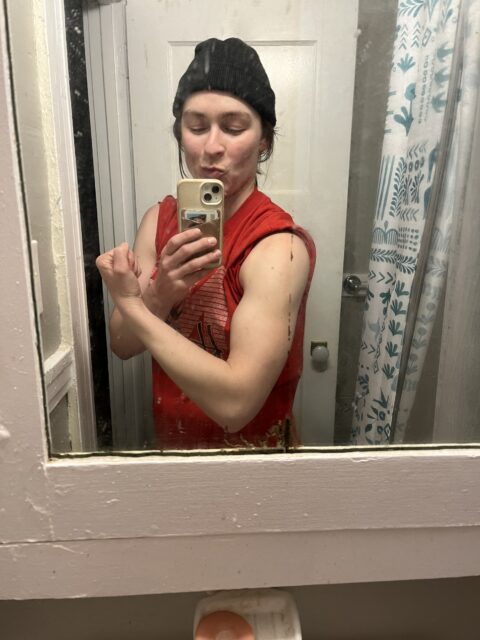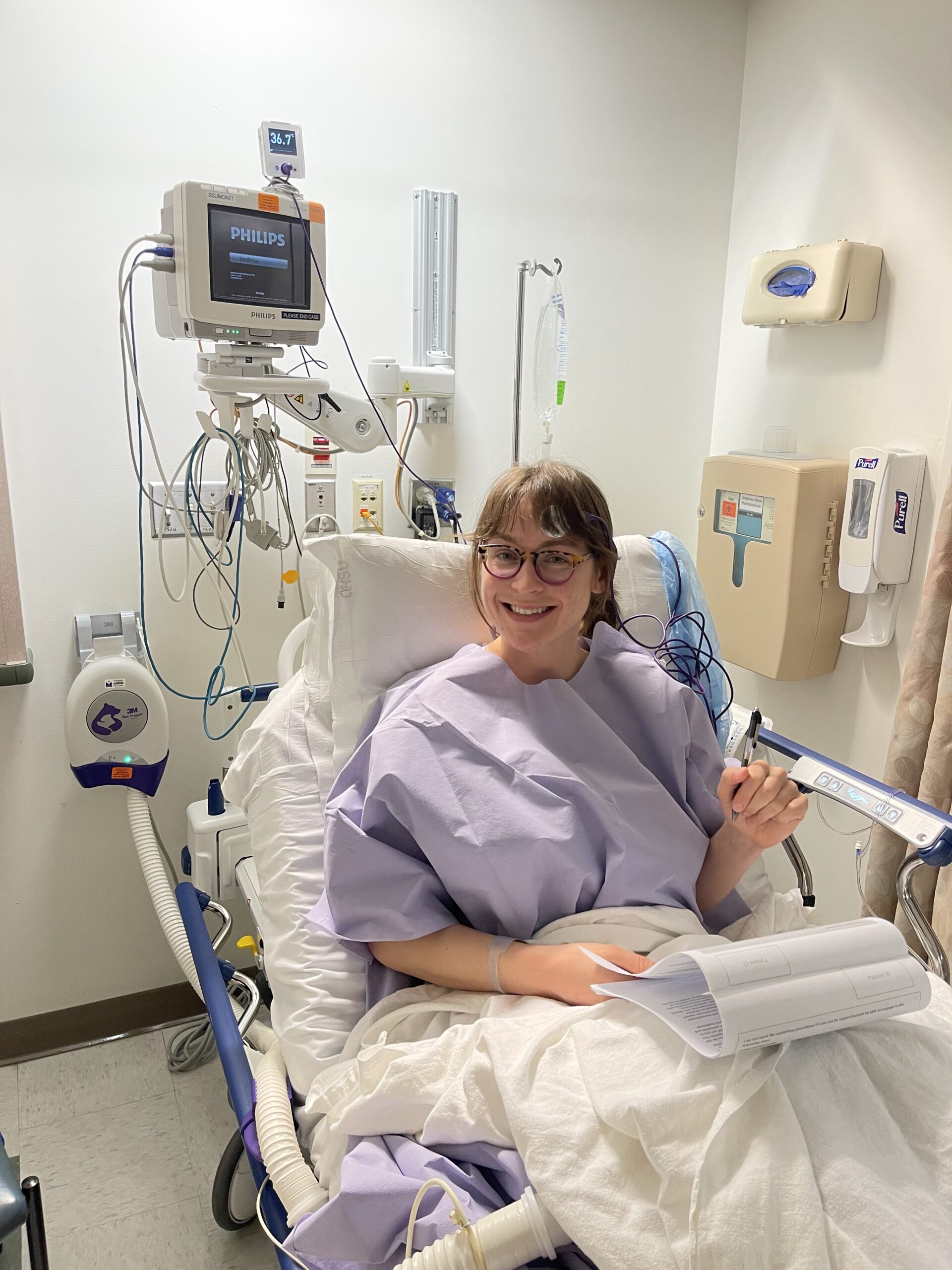

October 2024
I’ve had ovarian cancer twice as a young person (each time the rare tumor, Sertoli-Leydig, which accounts for <0.5% of all ovarian cancers) - ill-timed diagnoses taking away joy from milestone birthdays right before I turned 16 and 30. The first time in 2009 involved numerous painful surgeries to remove my melon-sized tumor, a blood transfusion, and doing my 10th-grade schoolwork in the chemo chair. Cancer is hard, and being a teenager is hard. They’re a hard combo together - I felt so embarrassed to wear a wig to school or have people see my scars when I wore a swimsuit, and I definitely had no language or comfort in talking about my gynecological complications. With no way out but to go straight through these issues, though, I found lasting confidence in who I am at my core - independent, optimistic, hard-working, not defined by my appearance - and it’s been an enormous asset to have this foundational understanding of myself at a young age. After making a fuss and usually stress crying at every doctor’s visit for the next 10 years, I finally got a doctor (notably, a primary care doctor, not an oncologist) who took more of a holistic interest in my health and suggested genetic testing. My results showed I had a rare mutation, DICER1, that caused my ovarian cancer, as well as put me at risk for a stupidly long list of other cancers: lung, brain, kidney, thyroid, eye, nose (excuse me, what?)… This knowledge led my family to do their own testing, where we discovered my dad and brother share this mutation - which is “nice” that the effort I put into this process led to my family having more information about their own risk factors and can now do screenings that were otherwise off their radar. (By the way, Oregon residents can do free genetic testing (saliva tests) through Healthy Oregon Project; even if you don’t think you have cancer risks, free is an excellent price to pay just to be sure!)
Knowing I had a genetic risk for ovarian cancer to strike again, I moved more quickly in 2023 when I noticed hormonal imbalances in my body: my periods became irregular and advanced to the point they were happening every other week, more people were misgendering me (a lower voice was a side effect of the testosterone my tumors produced – which never goes away, even after the tumor is gone. Dumb!), I was breaking out terribly and making quick muscle gains at the gym (alright, but that part was cool).
After finally convincing my regular gynecologist to order me bloodwork (she took absolutely no interest in my well-being or bothering to look at my medical history and was confident my dramatic changes were due to my non-hormonal IUD, which I had for years at that point, without side effects), my results showed testosterone levels 9x higher than normal for a woman. It took months and months to get my formal cancer diagnosis, but I knew and felt the defeat from this initial lab result.
Dealing with the same cancer a second time (this time with my own money and health insurance!) was extremely stressful, but the overarching feeling I had during this experience was annoyance. What was I supposed to learn anyway – didn’t I already overcome the self-confidence thing? Didn’t I already accept my body? Doesn’t my cancer know that I wear sunscreen and buy secondhand and that conscientious people don’t deserve such a fate?
I think I learned the lesson of speaking up a bit more through the annoyances: calling out doctors for not reading my chart (I got referred around and numerous times the new doctor would order a test I had just done days prior); going to therapy even if I thought I had nothing “worth” talking about; bringing up concerns about my treatment’s impacts to sexual function and pleasure even though I was made to feel that was off-topic and unimportant (I got a second opinion at MD Anderson in Houston, and this doctor cited that 25% (!!) of patients reported reduced sexual function after their hysterectomy); asking for help on small things I could technically do, but was nicer when someone else did it; asking friends to tell me I didn’t deserve this.
Perhaps another thing I learned from this experience was how important it is for me to have a wide net of friends/community to get support from, and that it’s vital to add enjoyment into everyday moments. I really resonated with The Atlantic article Suleika Jaouad’s Art of Survival and Audre Lorde’s book The Cancer Journals and their approach to maximizing their lives. What do I do to celebrate the body and time that I do have? How can I be curious about how my life unfolds instead of scared? I’m unclear what kind of party you throw to celebrate the 1-year anniversary of the last period of your life, but I’m sure I’ll figure something out for the occasion next month, and like this entire journey, be surprised how it turns out.


